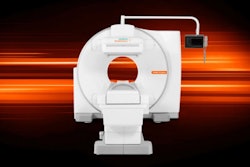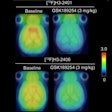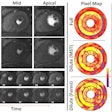GE Healthcare and Cardinal Health have been hit with an antitrust suit filed by radiopharmacy PharmaRx Pharmaceuticals, charging that the companies have a monopoly on sales of GE's Myoview cardiac imaging agent.
In an amended complaint filed on May 31 in the U.S. District Court in the Central District of California's Western Division, PharmaRx alleged that it and other nuclear pharmacies had been denied the right to purchase Myoview in certain sales territories and/or denied the right to purchase other products from GE, as a result of its tying those products to purchases of Myoview.
In addition to seeking injunctive relief to require that Myoview be available to PharmaRx and other firms, the company also sought damages based on the defendants' alleged "conspiracy to eliminate competition in the market for nuclear cardiac imaging agents in violation of federal antitrust law. Defendants illegally acquired and/or maintained monopoly power in the market for nuclear cardiac imaging agents, including Myoview," according to court documents.
In 2008, GE and Cardinal signed an agreement granting Cardinal the right to purchase Myoview for all of its radiopharmacies in the U.S. Cardinal operates more than 160 radiopharmacies throughout the U.S., and GE, in addition to manufacturing Myoview and selling it to independent radiopharmacies, also owns and operates its own radiopharmacies. Collectively, the companies own and operate nearly 200 radiopharmacies throughout the U.S., according to the complaint.
On June 22, GE and Cardinal each filed motions to dismiss the complaint. "In the misguided tradition of disgruntled distributors, PharmaRx seeks to turn what it acknowledges to be the unilateral distribution decisions made by GE Healthcare into an antitrust claim, and seeks relief requiring GE Healthcare to supply Myoview to every radiopharmacy that might wish to purchase it," GE said in court documents.
Antitrust laws do not require any firm to design its distribution system to satisfy the preferences of potential distributors, GE said in its court filings.
"GE Healthcare's unilateral decision not to grant expanded distribution rights to PharmaRx, its agreement with PharmaRx limiting the territories it may serve, and its agreement with another distributor granting that distributor rights instead of PharmaRx do not violate the antitrust laws," GE said in the filing.
In its motion, Cardinal stated that PharmaRx's complaint fails to allege an anticompetitive agreement between Cardinal and GE "because their vertical distribution agreement was lawful and no facts have been alleged plausibly supporting an illegal agreement," according to court documents.
PharmaRx's complaint has not charged Cardinal with possessing monopoly power on its own, and its charge that Cardinal possesses "shared monopoly" in collaboration with GE is not recognized in the Sherman Antitrust Act, Cardinal also noted.
The court will meet on August 23 to hear the motions.





















